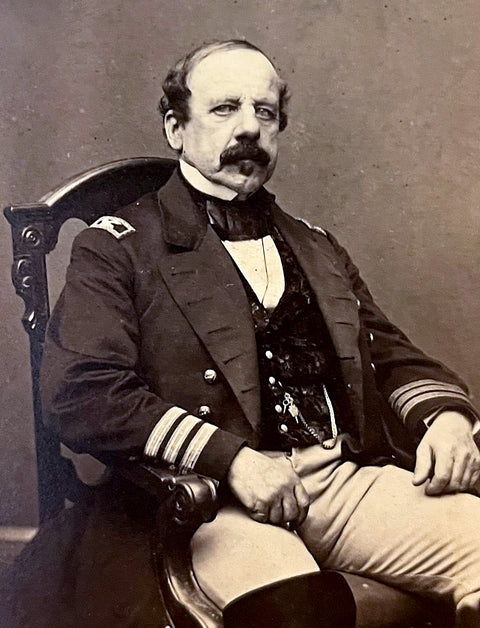
The Rogue General Lincoln Loved
Jean Napoleon Zerman was an enigmatic soldier of fortune, with an incredible knack for hairbreadth escapes. He spent a fair time in and out of prisons and evaded execution on more than one occasion. In 1862, President Abraham Lincoln nominated him as a brigadier general of volunteers—nearly adding U.S. general to his extraordinary resumé had Congress not had other plans. He now rests essentially forgotten in an unmarked grave in San Francisco’s so-called “City of the Dead.”
Born in Venice, Italy, on June 24, 1790, Zerman joined the French Navy in his youth and later returned to Italy in 1830 to participate in the failed attempt to overthrow Austro-Hungarian rule. He was arrested and sentenced to death for high treason by the Austrians. His sentence was commuted, however, and he served a lengthy prison term at the infamous Špilberk Castle.
In 1848, Zerman opened a ship ballast business in San Francisco. Never distant from intrigue, however, he plotted with others to form a provisional government in Baja California. Arrested by the Mexican governor upon landing in Baja’s capital of La Paz, Zerman was imprisoned for two years before acquittal by Mexico’s Supreme Court. He made his way back to the United States a free man.
In August 1861, Maj. Gen. John Frémont added Zerman to his staff, reportedly to command a flotilla down the Mississippi. The next month, Maj. Gen. David Hunter appointed him the 1st Division’s inspector general and endorsed his promotion to brigadier general. Lincoln followed with a formal nomination, although there was some powerful opposition—French ambassador Henri Mercier, in particular.
Mercier, who knew Zerman from his time in Spain and for an incident in New York in 1850, called him a “detected adventurer and imposter….he is a convicted swindler and forger, who has served in galleys and pined in the jails of Europe so often, that such facts ceased to be novelties worth mentioning.”
Nevertheless, New York Senator Ira Harris and other influential friends came to Zerman’s defense and the Senate confirmed the nomination on May 5, 1862, only to recall it on May 6 because of continued outrage from the foreign diplomatic corps.
In an August 1862 letter to Lincoln, Zerman wrote: “Know with the draft you need good officers[;] therefor Excellence I hope you will employ a man who has forty years of experience in the military career and who is disposed to sacrifice his life for our cause and whose Services will be satisfactory to your opinion.”
Jean
Napoleon Zerman’s unmarked grave in the Holy Cross Cemetery outside San
Francisco. His wife and daughter are buried at his side.
Embroiled during the war in a blockade-running scandal to supply arms to the Mexicans against the French, Zerman left for Mexico and offered to serve as Emperor Maximilian’s chief of his secret police. Expelled from Mexico in 1868 by the new Republican government, he returned to the United States. Two years later, he escaped an assassination attempt. Finally, on December 10, 1876, he died of natural causes at the age of 86. He is buried next to his wife and daughter in an unmarked grave at Holy Cross Cemetery in Colma, Calif. A GoFundMe campaign is now in place to provide this eccentric soldier a headstone.
This article first appeared in America’s Civil War magazine
Facebook @AmericasCivilWar | Twitter @ACWMag
